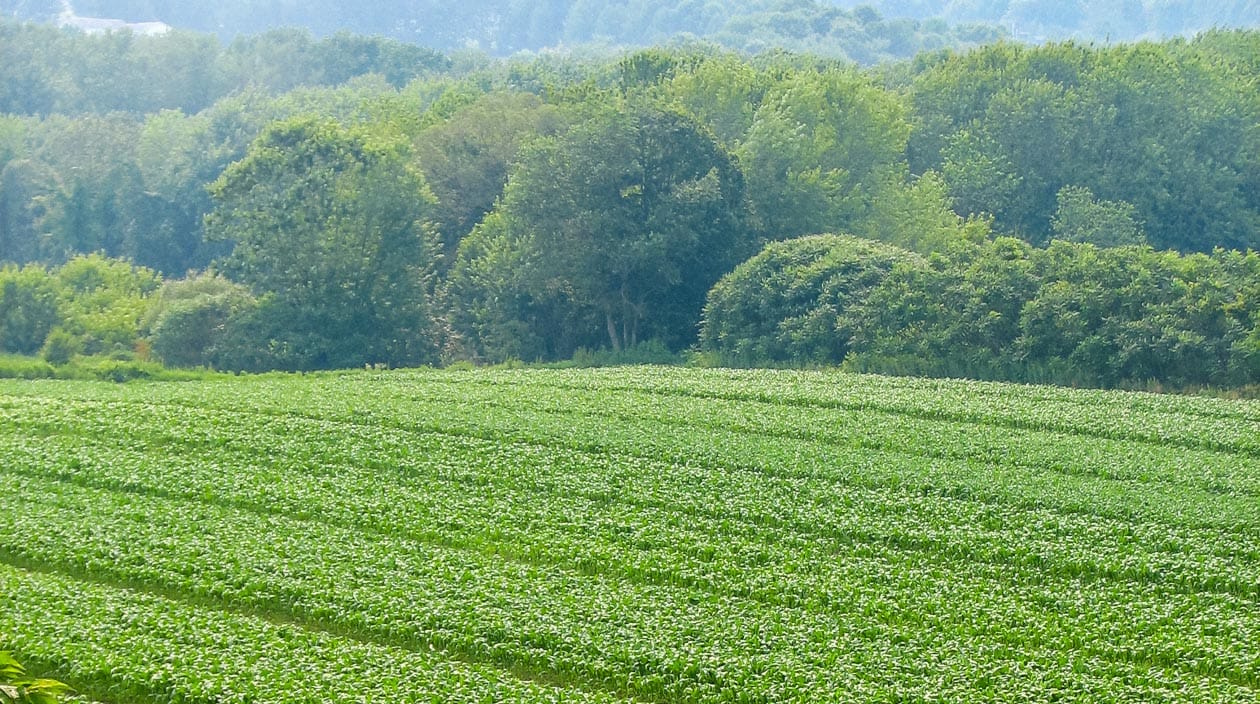Manomet’s Director of Sustainable Economies Andy Whitman advised the University of Vermont on the project they submitted for the grant they receieved. Whitman shared: “I am pleased to be part of this regional effort to help foresters and farmers adapt to climate change in the Northeast. In the foreseeable future, preparing for climate change will fall to local communities and land managers. Local land managers best know how to tackle climate change in our backyard. I am looking forward to working with scientists and land managers to find the best and most practical ways to for tackling this challenge regionally. ”
WASHINGTON, D.C. July 19, 2017 – The U.S. Department of Agriculture’s (USDA) National Institute of Food and Agriculture (NIFA) today announced nine grants totaling more than $8 million to study and develop new approaches for the agriculture sector to adapt to and mitigate the effects of changing environmental conditions. The funding is made possible through NIFA’s Agriculture and Food Research Initiative (AFRI) program, authorized by the 2014 Farm Bill
“We have to develop robust plants, animals, and management systems that can flourish under challenging environmental conditions,” said NIFA Director Sonny Ramaswamy. “We expect that the outcomes of these investments will support American farmers and producers, and ensure their profitability.”
AFRI is America’s flagship competitive grants program for foundational and translational research, education, and extension projects in the food and agricultural sciences. The Agriculture and Natural Resources Science for Climate Variability and Change Challenge Area aims to provide risk management information and tools to enable land managers to stay viable and productive, and reduce the use of energy, nitrogen, water, and greenhouse gas emissions.
FY16 grants being announced today, by state, include:
- Climate Outreach and Extension
- University of Alaska, Fairbanks, Alaska, $250,000
- New Mexico State University, Las Cruces, New Mexico, $249,900
- Cornell University, Ithaca, New York, $250,000
- University of Vermont, Burlington, Vermont, $248,900
Climate and Land Use
- University of Florida, Gainesville, Florida, $3,414,911
- University of Idaho, Moscow, Idaho, $3,414,911
- Clemson University, Clemson, South Carolina, $147,744
- George Mason University, Fairfax, Virginia, $35,300
- Evergreen State College, Olympia, Washington, $49,260
Project details can be found at the NIFA website.
Among the grants, a New Mexico State University project aims to increase climate change literacy while supporting both adaptation and mitigation activities for different and diverse groups through a comprehensive program. A University of Florida project will identify and test climate adaptation and mitigation in fruit and vegetable supply chains using a holistic, systems approach based on crop, economic, and environmental modeling.
Since 2009, more than $150 million in research and extension grants have been awarded through AFRI in support of efforts to adapt to and minimize the impacts of climate change. Previously funded projects include a Kansas State University(link is external) study focused on developing grazing management strategies in the Southern Great Plains to adapt regional beef production to changing conditions, such as heat and drought, while reducing its environmental footprint. This work in the Southern Great Plains will contribute to resilience and sustained productivity in the beef industry. A Washington State University(link is external) study is dedicated to improving the sustainability and integrity of water resources and ecosystems in the Columbia River Basin threatened by dwindling water supplies, growing demand from multiple uses, low oxygen, algae blooms, and reduced biodiversity. Understanding how the demands on water resources are impacted by climate variability will factor into sound public policy to improve water conservation and quality.
NIFA invests in and advances agricultural research, education, and extension and promotes transformative discoveries that solve societal challenges. NIFA support for the best and brightest scientists and extension personnel has resulted in user-inspired, groundbreaking discoveries that combat childhood obesity, improve and sustain rural economic growth, address water availability issues, increase food production, find new sources of energy, mitigate climate variability and ensure food safety. To learn more about NIFA’s impact on agricultural science, visit www.nifa.usda.gov/impacts, sign up for email updates(link is external) or follow us on Twitter @USDA_NIFA(link is external), #NIFAImpacts(link is external).





 Back to all
Back to all